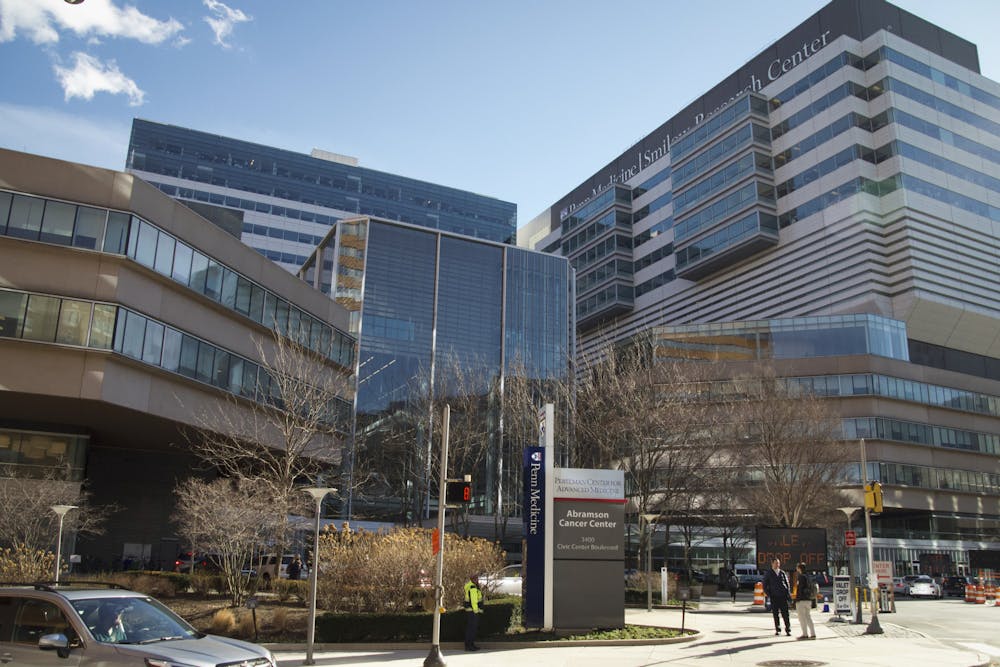
The Parker Institute for Cancer Immunotherapy at Penn is located at the Abramson Cancer Center.
Credit: Mehak DhaliwalPenn renewed its membership in a national cancer research partnership funded by the Parker Institute for Cancer Immunotherapy and will be one of the recipients of a $125 million grant distributed across the PICI’s network.
PICI, created in 2016 with an initial $250 million grant from philanthropist and entrepreneur Sean Parker, aims to fast-track cancer research breakthroughs through collaborations with institutions across the country. Penn’s Perelman School of Medicine was one of the first medical schools to join the consortium, along with other peer institutions such as the Stanford University School of Medicine, David Geffen School of Medicine at the University of California at Los Angeles, and Dana-Farber Cancer Institute.
PICI specifically funds research on immunotherapies, which are treatments that use the patient’s natural immune system to target and kill cancerous cells without disturbing healthy cells.This cross-institutional approach has produced 440 research projects and clinical trials and involved over 850 scientists. Additionally, PICI has made investments in 17 biotech startup companies working on cutting-edge cancer immunotherapies.
In July, PICI announced a $125 million investment that will be distributed to member institutions over the next five years. A portion of the money will go to PICI at Penn to fund clinical trials and the training of early-career scientists at Penn Medicine’s Abramson Cancer Center.
PICI at Penn is led by Carl June, director of Penn’s Center for Cellular Immunotherapies and one of the pioneers of CAR-T cell immunotherapy.
“Being part of PICI has opened new doors for teamwork across institutions that has already proved to be very fruitful in moving immunotherapy forward as a pillar of cancer treatment,” June told Penn Medicine News.
Two specific PICI-funded trials being conducted at Penn involve the use of CRISPR-edited cells and CAR-T cell therapy.
The first United States clinical trial testing CRISPR-made cancer therapies launched in 2019 as a collaboration between Penn and Stanford. CRISPR/Cas9 technology is used to selectively modify sections of the genome to detect and destroy flawed, or cancerous, DNA. In 2020, researchers found that these genetically-edited immune cells are able to kill cancer cells in patients. The edited cells have the ability to thrive and function for months after the patient receives them.
CAR-T cell treatment is another form of immunotherapy funded by PICI. This treatment removes the patient’s white blood cells, genetically engineers them, and reinserts them back into the patient’s body.
While this treatment was initially developed for blood cancer, recent research has allowed it to begin to be applied to solid cancers like glioblastoma, a type of brain cancer.
The Daily Pennsylvanian is an independent, student-run newspaper. Please consider making a donation to support the coverage that shapes the University. Your generosity ensures a future of strong journalism at Penn.
Donate






